The Law Society Virtual AGM 2020
- Details
Maria Memoli, Law Society Council Member for Local Government, sets out the background to Chancery Lane's Virtual AGM next week and calls on the sector’s solicitors to register to vote.
The Law Society Council has decided to cut the Local Government seats down from two to just one. The next step is to propose new Byelaws to implement these changes. Therefore there are Motions going before the AGM being held at 2.30 pm on 14 October to approve these changes in the Byelaws. The other matter concerns council members’ years of service. The Council voted not to have the cut off at 12 years tenure because it felt there should be a mixture of long and short experiences. This motion is going to the AGM to change the council decision and seeks to implement new Byelaws restricting the tenure to 12 years. The background papers to the motions makes for interesting reading. If you have time, do read them.
How to register to vote – you will need your SRA no.
Now is your opportunity to have your say by voting on-line at Law Society AGM on the 14th October. You will need to inform the Law Society that you wish to participate. Click on this link to register and it should take you directly to the form. You will need your SRA no. to register. Time is short and you must register by the 12th October latest. The notice and papers will be sent to you by the Law Society on the 13th October together with instructions on how to vote electronically.
Note: Should you run into difficulties please contact the Law Society directly by email:
My role on the Law Society Council
My role on the Law Society Council, is to be the voice of Local Government and then equally to disseminate news, views and summaries to LLG.
Over the past years I have battled in these areas to:
- reduce the practising certificate fees for Local Government solicitors
- lobby the SRA to relax the rules in relation to solicitors working in local government and more generally in-house
- obtain exemptions from the SRA to lift stringent rules so Local Authorities could act for and advise on creating schools academies
- keep local government independent and away from the In-house division when it ceased to become a recognised group, (whilst member of the Law Society’s Management Board)
- retain the two Local Government seats (whilst member of the Law Society’s Management Board)
- ensure the voice of Local Government is heard loud and clear
- bring the Local Government Diploma under the umbrella of the Law Society, when the College of Law ceased to exist, rather than be hived off elsewhere
And many other issues.
Here’s the story about the Local Government seats:
Most Council Members agree that a Council of 100 is simply unwieldy, and expensive to run. Most accept change, some will embrace change reluctantly and others more enthusiastically, but it is accepted that change is inevitable, but what some are saying is “ Not now. Now is not the time to be navel gazing”. There are others, with self-interests who are keen.
Where change is concerned, there is never a right time. However we live in unprecedented times, we are feeling our way in unchartered territory. The legal profession is in the process of major changes in the way legal services are delivered. Many are working from home and will continue to do so in the foreseeable future, some firms are collapsing and making some of their staff redundant. Some legal services are joining forces, either as a shared entity or merely sharing back office support like telephone services, IT, HR, typing etc.
What will be the new norm in 6 /12/18 months? No-one knows. The only certainty is change. So from a personal perspective, I am a firm believer in change, change is good, but not for the sake of it, and I do not believe it is the right time for the Law Society to be looking at how its structures are to be implemented, when we are in the middle of a pandemic. The profession are more concerned with their well-being, their survival and their very existence. In any event, form follows function, not the reverse. I came across my speech when I addressed Law Society Council back in 2016; the questions I asked of the Council Membership Committee(CMC) then and now have not been answered (i.e. equality impact assessment, methodology used, empirical and other evidence, and proportionality)
CMC were tasked with reviewing the structure of Council several years ago, but most importantly to make it more representative. I am often asked “What does the Law Society do for me?” In the past this has been difficult to answer from a local government perspective (other than the slight reduction in the PC fee perhaps). Lately though, the Law Society Council, and in particular our President Simon Davis, has turned this around. The Society is seen as being proactive, ready to give advice and assistance to the profession particularly during lockdown.
The legal profession, like many others, is going through some unprecedented changes. Often lagging behind technologically speaking, it has had to adapt and change at pace. Many are suffering at the hands of the pandemic. Who would have thought we would be scared of the dreaded COVID-19 a year ago? But here we are and we are all adapting and changing as best we can. In local government, we have been used to working from home, not having a specific desk, let alone space, having virtual meetings via Skype business, or other means, so we tend to be more agile and prepared. Council Meetings have been recorded for years now. We were quick enough to pass the relevant legislation early this year, required for virtual Council Meetings, and postponing Council AGMs. We are nimble and fleet of foot, at getting things done which matter and are important to us. Now is no different.
The Law Society have turned to virtual meetings now, no more face to face meetings and the staff and office holders are at home. Great! what a huge saving in overhead costs, but at what cost? Rooms cannot be hired because they’re not COVID safe so revenue is down.
S. 51 is looming over us with voluntary subscriptions. The Legal Services Board are consulting on the PC fee and what proportion goes to whom. They say they want to bring about a fair and transparent process. It’s just a crazy period now. A little pause for thought here. If the Law Society decide to disenfranchise us, there could potentially be approx. £1.5m loss in revenue (in PC fee income). Many many years ago we solicitors in local government were just a group of solicitors sharing best practice and organising training events to benefit this group. The Law Society brought us in the fold by enticing us into Recognised Group Agreements, which worked very well as were given a small grant, a policy officer and other support to the Group. However, The Law Society decided to restructure, do away with recognised groups and bring these groups into the new divisions. We resisted and won, hence we are a hybrid, a stand-alone group and do not in any way shape or form come within the In-house Division.
Representation
I will say here and now I am in favour of “true” representation of “all” the profession and not just a handful, but it must be fair, transparent and warranted.
So what are these changes? Let’s start with reduction in area specific seats and yes this means Local Government down from two seats to just one. Even looking at proportionality (because that’s what we understand in a truly democratic environment) in its current form of 100 Council seats, Local Government, with 5,000 members, should by rights have a minimum of 3 when rounded down. A reduction of Council seats of 75 would ordinarily give us 2 + seats, rounded down to 2. Is Local Government fairly represented? No. We have always been seen as the poorer relation, and the current proposals repeat this.
Despite repeatedly asking for the rationale in reducing the seats, the methodology used in presenting the changes, and the empirical evidence, none has been provided thus far. Both myself, as your Local Government Law Society representative, and LLG have not to this date had satisfactory answers to our questions.
Many of my fellow Law Society Council members who have geographical seats are disenchanted, with postcodes being carved up without any logic provided; a postcode lottery, with no nexus, disregarding the people and places that have co-existed and have been represented for many years. Some argue some of these changes are being imposed without proper consultation with those affected. I chair the Scrutiny and Performance Review Committee of the Law Society and these matters were discussed on Monday this week and will be the subject of my report to Council on the morning of the AGM.
Both myself and LLG have made representations as to why the voice of local government is important. I have emphasised and demonstrated this to Law Society Council. Local government runs through the veins of the legal profession, of businesses, the environment, our communities,. We have seen first-hand how local government is working with NHS trusts and clnical commissioning groups, with provision of care in the community, in education working with the Education Minister getting children back to schools safely, and in relation to the environment. We are helping businesses to survive by advising on licensing, dealing with homelessness, responding to the relaxation of planning regime to build more homes. The list is endless. Now is your opportunity to take proactive action and vote at the AGM.
Governance
So let’s turn now to the governance issues, which we in local government are good at. Back in February CMC brought a paper to Council with the proposed changes to the structure and the paper was withdrawn for further work and further discussion, with one exception: the proposal for Council Members to have a tenure of maximum of 12 years. This was debated and defeated. Council Members having heard arguments from all sides, decided there should be a balance of experienced Members and fresh Members. It was also noted that many presidents up to that point had been on Council for well over 15 years+. Council had made its decision: the 12 year rule was abandoned.
The Junior Lawyers Division have decided to go against Council’s sovereign decision and are now putting a motion to the AGM on the 14th October to reduce this back down to 12 years (with certain particular exceptions). I understand and sympathise, but Council had made a decision. I have my own views on this motion. However Members have an opportunity to vote on this issue, if they so wish, by registering their interests with the Law Society to vote at the upcoming AGM.
Interestingly some Council constitutions /standing orders actually prohibit matters from coming back to Council during a certain period of time, to stop decisions from being over-turned. There is a good reason for including that.
Please be aware that I myself will not benefit from this, because I will be standing down when my term ends next year, but I still believe we should have two seats and not one to ensure local government representation is not diminished, and if anything this should be enhanced due to the changing nature of our business and the world around us. We are the glue that sticks everything together. So have your say now and give yourself time to register to vote.
Maria Memoli, Solicitor, MBA, Accredited Mediator, Law Society Council Member representing Local government.
Legal Director - Government and Public Sector
Senior Solicitor - Property
Legal Officer
Head of Legal Services / Deputy Monitoring Officer
Locum roles
 Court of Protection Property and Financial Affairs Webinar Series: Contested Statutory Will Application - 39 Essex Chambers
Court of Protection Property and Financial Affairs Webinar Series: Contested Statutory Will Application - 39 Essex Chambers
02-03-2026
Online (live)
 Housing and Homelessness Conference - Birmingham 2026 - 4-5 Gray's Inn Square
Housing and Homelessness Conference - Birmingham 2026 - 4-5 Gray's Inn Square
03-03-2026 9:30 am
East Midlands
 Law Enforcement Data Processing and Part 3 of the DPA 2018 - Act Now
Law Enforcement Data Processing and Part 3 of the DPA 2018 - Act Now
05-03-2026 10:00 am
Online (live)
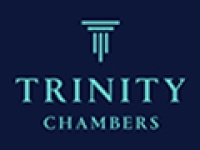 Cross-Border Placements of Children - Justin Gray, Trinity Chambers
Cross-Border Placements of Children - Justin Gray, Trinity Chambers
05-03-2026 3:00 pm
Online (live)
 The Case for Ecocide Law: In Conversation with Gerard Forlin KC and Jojo Mehta - Cornerstone Barristers
The Case for Ecocide Law: In Conversation with Gerard Forlin KC and Jojo Mehta - Cornerstone Barristers
05-03-2026 5:00 pm
London
 Grappling with S73 - variations of conditions applications or appeals - Ivy Legal
Grappling with S73 - variations of conditions applications or appeals - Ivy Legal
09-03-2026
Online (live)
 HMPL Building Blocks: Tenancy Management – Assignment, Mutual Exchange and Succession - Devonshires
HMPL Building Blocks: Tenancy Management – Assignment, Mutual Exchange and Succession - Devonshires
12-03-2026
Online (live)
 AI and Information Governance: Bridging Innovation and Compliance - Act Now
AI and Information Governance: Bridging Innovation and Compliance - Act Now
12-03-2026 10:00 am
Online (live)
 Damages and other remedies in claims against HE institutions - 3PB
Damages and other remedies in claims against HE institutions - 3PB
12-03-2026 11:00 am
Online (live)
 Housing Act 2004 & the Private Rented Sector – where are we now? - Cornerstone Barristers
Housing Act 2004 & the Private Rented Sector – where are we now? - Cornerstone Barristers
16-03-2026 11:00 am
Online (live)
 Property Law Nuts and Bolts webinar series - Forfeiture - Landmark Chambers
Property Law Nuts and Bolts webinar series - Forfeiture - Landmark Chambers
17-03-2026
Online (live)



















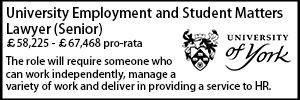











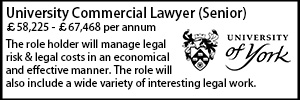



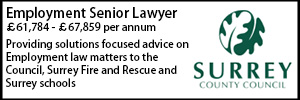

















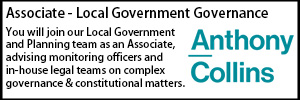
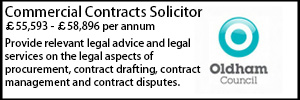














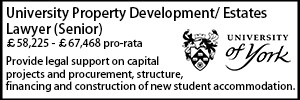




















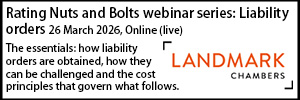


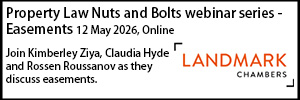
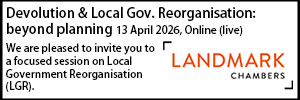
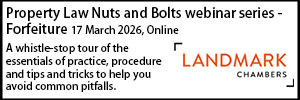

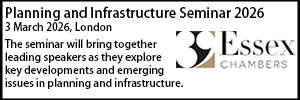







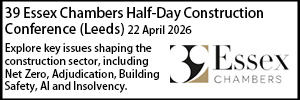
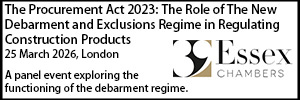




























 The SEND White Paper: the legal perspective - Landmark Chambers
The SEND White Paper: the legal perspective - Landmark Chambers  The General Data Protection Regulation - Act Now
The General Data Protection Regulation - Act Now  Data protection Conference - Hugh James
Data protection Conference - Hugh James  Contract modifications under the Procurement Act 2023 - DWF
Contract modifications under the Procurement Act 2023 - DWF  Certified Data Protection Officer Training (CDPO) - The Training Centre
Certified Data Protection Officer Training (CDPO) - The Training Centre 